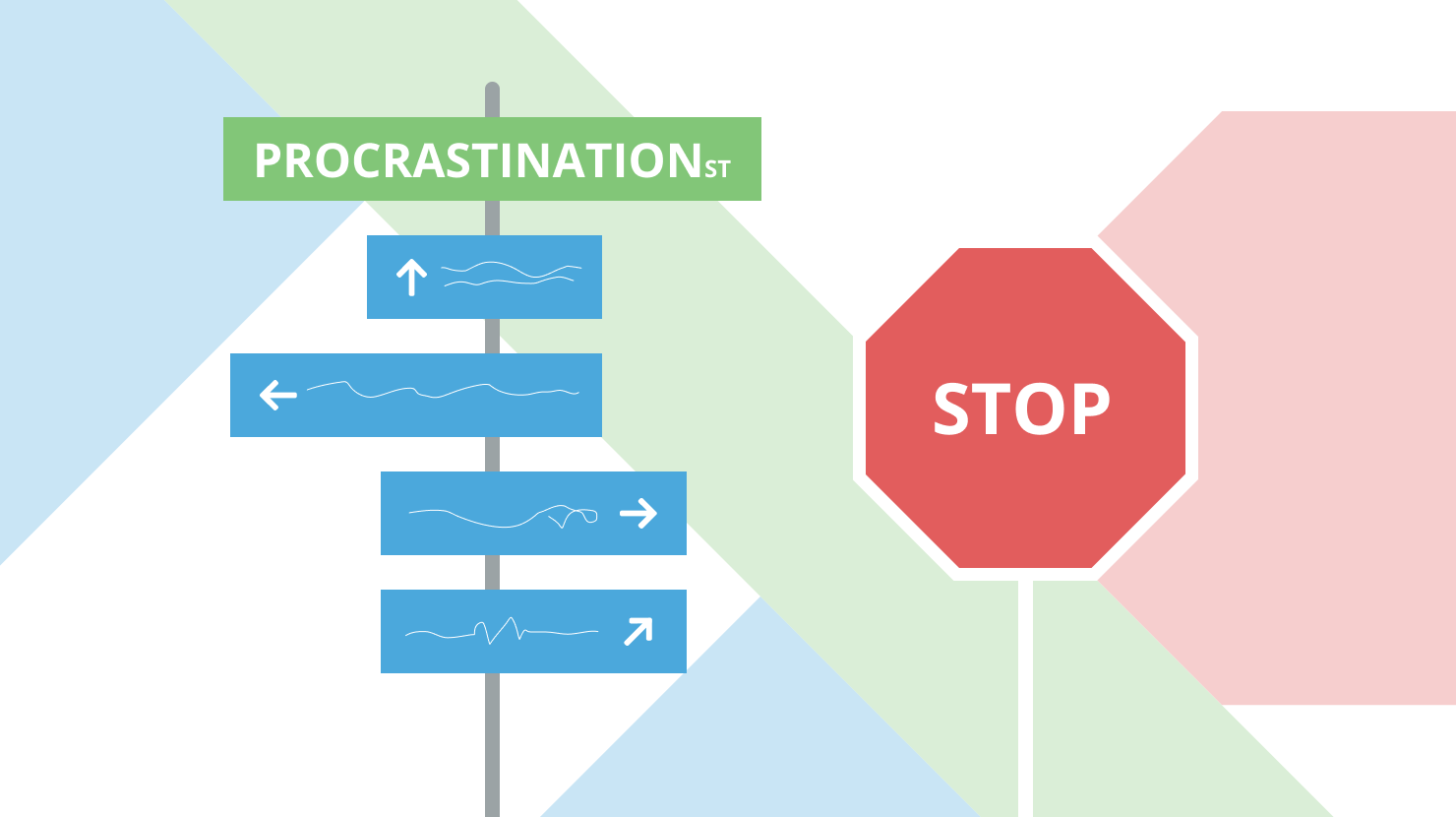4 min read

I’m procrastinating right now. Maybe by reading this, you are too. And guess what? That’s perfectly okay! Let me explain...
The thing is, procrastination has always been misunderstood. The popular misconception says that it destroys productivity. It’s the thing we do when we want to put off an important task, which a lot of people associate with laziness, carelessness, and idleness (all the nesses).
We’re taught that procrastination is a negative force in our working lives, that successful people definitely don’t do it, and that stamping it out is the key to our salvation: improved time management skills, increased productivity, and if we play our cards right, maybe a promotion.
But procrastination is much more complicated than that. For many of us, if not all of us, procrastination is an inevitable, natural behavior which, if harnessed, could become a productive force in our lives.
You heard it here first: procrastination might actually have benefits.
If you search on Google for “procrastination” you’ll probably see a lot of articles written by time management and productivity experts offering advice on how to “stop procrastinating,” as if that’s easy or even possible.
But let’s establish an important fact here: everybody procrastinates. Even if they don’t admit it. Yes, even Ingrid, the seemingly superhuman VP of HR.
Even your CEO procrastinates. (But maybe don’t ask them about it.)
According to psychologists, procrastination is a pretty common anxiety response. If we’re anxious about a big presentation or an important project, our anxious brain thinks “well, if I don’t have it in me to do this, maybe I shouldn’t even try. I’ll put this off until I feel more confident about it.”
The more meaningful or important the task is to us, the more likely we are to feel that we’re unable to accomplish it. And this effect is even more pronounced in people who suffer from chronic anxiety disorder.
And that’s why telling someone to “stop procrastinating” is akin to telling someone who suffers from anxiety to “stop being anxious.” It’s just not really going to work. Not only that, it’s at least a little bit insulting because, for most of us, procrastination can’t just be turned off with a switch. Research suggests it may even be a fundamental part of who we are.
OK so, what can we do about procrastination if we can’t stop it?
The best thing you can do about procrastination is attempt to understand it, and then begin to use it to your advantage. Knowing when and, more importantly, why you procrastinate is crucial information for controlling it, or at least reining it in somewhat (if you find that it’s becoming a problem for you).
The next time you notice you're procrastinating, it's useful to distinguish between the feeling of “I don't want to do this right now” and “I'm not ready to do this yet.”
Predicting your behavior before you approach a task can help you better manage your time.
For example, if you have to deliver a speech and you know you’re typically terrified of public speaking, you might make an educated guess that you’ll procrastinate at some point when you’re preparing your speech. Great. Now you can factor your procrastination into your prep time.
Another way to combat anxiety-based procrastination is to accept that it’s better to do something imperfectly than nothing perfectly. You’re probably way more talented than you think you are. Getting those words on the page, taking a risk in your speech, or making a vague project attack plan will all go a long way towards the finished product. Put down something, anything, see what sticks, and then return to it later to make improvements.
Remember when you were in university and you had an important paper due the following Monday? If you were like me, you spent that precious time meticulously cleaning your apartment. As the due date drew closer, my apartment would be sparkling.
You might say that wasn’t the best use of my time, but it worked for me because it calmed my nerves and helped me think clearly when it was time to put my thoughts down on paper. And there was a bonus: my apartment had never been cleaner.
It’s important to remember that your mind works through problems passively. Sometimes, if you're staring at the screen and willing yourself to break through just isn't working, the best thing to do is take a step back and work on something else. In other words, if you're anxious about an important project, go clean your apartment.
Not literally, of course.
Someone once told me that the best way to stay productive when you procrastinate is to take care of tasks that can be done in 5 minutes or less. Big project got you nervous? Get your mind off it by answering a couple emails. Tidy up your workstation (there’s a theme here, isn’t there). Brainstorm. Discuss another project with teammates. Anything that keeps you feeling productive.
The point is, you shouldn’t be afraid to concentrate on some more manageable tasks for an hour or two to collect your thoughts and get yourself back in the zone. Plus, there’s another benefit of feeling like you’ve accomplished a lot in the time you spent procrastinating. Because you have!
Procrastination is normal, natural, and extremely common. We all contend with it in some form or another, some better than others. If it’s starting to become a recurring problem for you, however, don’t panic. Simply take a step back and think about how and why you’re procrastinating in the first place. Once you start to accept that procrastination is a typical behavior, then start to think about how you can use it to your advantage.
Read more by
Corey Moseley
Jostle’s employee success platform is where everyone connects, communicates, and celebrates at work. Find out more at jostle.me. © 2009–2026 Jostle Corporation. All rights reserved.